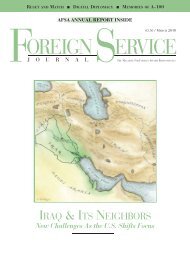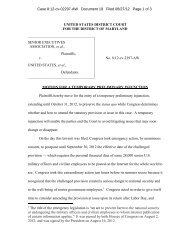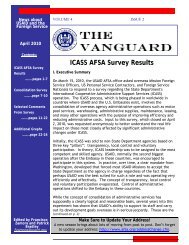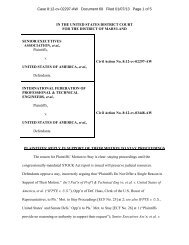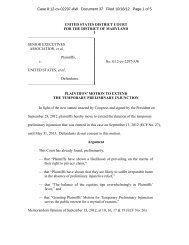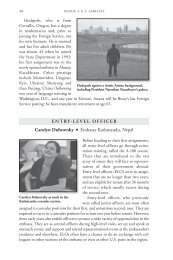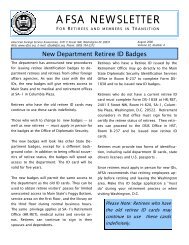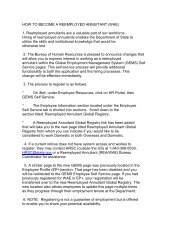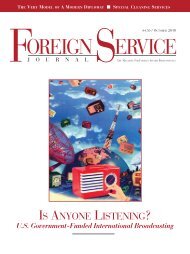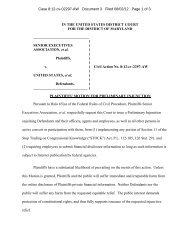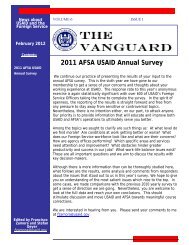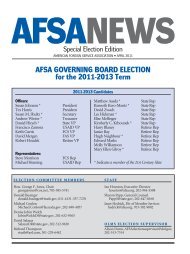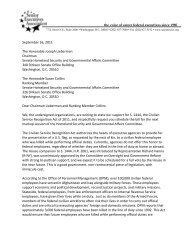ACLU Lawsuit - Motion to File - American Foreign Service Association
ACLU Lawsuit - Motion to File - American Foreign Service Association
ACLU Lawsuit - Motion to File - American Foreign Service Association
You also want an ePaper? Increase the reach of your titles
YUMPU automatically turns print PDFs into web optimized ePapers that Google loves.
Case 8:12-cv-02297-AW Document 2 <strong>File</strong>d 08/02/12 Page 2 of 4<br />
from Internet publication. Three of the Plaintiffs, especially concerned with keeping their<br />
identities private, have filed using the name “Jane Doe.”<br />
Should Plaintiffs’ motion for a preliminary injunction be denied, or granted and reversed<br />
on appeal, or should final judgment in this case be for the Defendants, the presence of Plaintiffs’<br />
home addresses in the caption of this case would make even easier and more likely some of the<br />
very harms — identity theft and financial fraud — that they are filing this lawsuit <strong>to</strong> try <strong>to</strong><br />
prevent. It would be ironic, and unjustified, <strong>to</strong> require them <strong>to</strong> take those risks as a condition of<br />
seeking judicial relief.<br />
This Court recognizes the need <strong>to</strong> protect the privacy interests of litigants. For example,<br />
the Court’s Privacy Policy for Civil Cases provides that, “Social Security numbers, financial<br />
account numbers, dates of birth and names of minor children not parties <strong>to</strong> a case are personal<br />
identifiers which unless otherwise ordered by the court should not appear in public court<br />
documents [with certain exceptions] regardless of whether the documents are filed electronically<br />
or in paper format.” Like that information, public disclosure of a home address can result in a<br />
serious invasion of privacy.<br />
The same general principles as filing using pseudonyms should apply here. In Doe v.<br />
Von Eschenbach, 2007 WL 1848013 (D.D.C. June 27, 2007) (No. 06-2131 (RMC)), the D.C.<br />
Circuit explained that the use of pseudonyms “has been permitted where the issues are ‘matters<br />
of a sensitive and highly personal nature . . . .’” Id. at *1 (quoting Southern Methodist Univ.<br />
Ass’n of Women Law Students v. Wynne & Jaffe, 599 F.2d 707, 712–13 (5th Cir. 1979)). The<br />
Court “balance[s] the presumption of openness with [the] plaintiff’s privacy rights.” Id., at *2.<br />
In the circumstances of this case, that balance weighs in favor of keeping Plaintiffs’ home<br />
address off the public record.<br />
2



